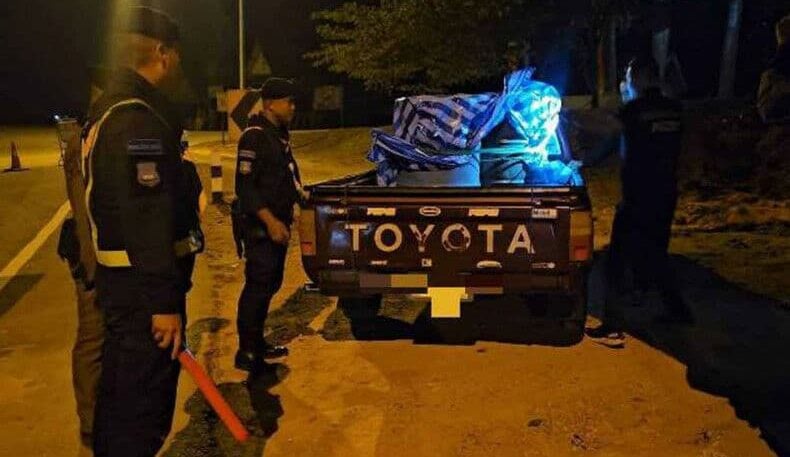Thailand considers border ban and export halt to curb scams

The Government of Thailand is considering intensifying its efforts against call-scam gangs operating from Myanmar, potentially including a border ban on suspected accomplices and halting solar panel exports to Myanmar. This was stated by senior officials following recent discussions.
Chatchai Bangchuad, Secretary General of the National Security Council, stated yesterday, February 11, that current anti-scam measures will continue. Should these prove insufficient, additional strategies may be implemented for greater effectiveness.
Proposed by the Commerce Ministry, these additional strategies could involve stopping solar panel exports to Myanmar and regulating exports of oil and cooking gas.
Deputy Prime Minister and Defence Minister Phumtham Wechayachai announced plans to prevent people suspected of links to the gangs from accessing border areas near scam centres and to bar their crossing from Thailand to Myawaddy.
Phumtham acknowledged the existence of 300 to 400 scam gangs in and near Thailand’s borders. The government is actively working to repatriate Thais who have been coerced into working for these gangs.
Intelligence reports indicated that last week’s interruption of electricity, fuel, and internet services in Myanmar’s border areas significantly impacted the gangs’ operations, according to the minister.
Call scam
Digital Economy and Society Minister Prasert Jantararuangtong noted that internet services to neighbouring countries have been cut. The government is also requesting these countries to deny scammers access to Starlink, should they attempt to use the satellite internet service.
Prasert explained that scammers acquired Starlink dishes from abroad and smuggled them into Thailand, where their sale and use are prohibited. “The products were bought from neighbouring countries and brought into Thailand. We have seized these products on several occasions, collecting at least 200 dishes in total,” Prasert remarked.
The minister added that Thai officials have reduced the height of internet antennas in border areas, adjusting signals to serve only Thai customers, and severed illegal internet cables supplying neighbouring countries.
“Secretly installed internet cables were cut off. Officials will monitor these areas weekly over the next three months,” Prasert stated.
The Thai government recently cut power, oil, and internet services to five communities in the Myawaddy, Payathonzu, and Tachileik regions of Myanmar following a visit from a Chinese security delegation.
Most of the scams are orchestrated by Chinese gangs, with many Chinese and Thais deceived into working under oppressive conditions.
Current measures, along with the potential ban on solar panels, aim to prevent the gangs from circumventing sanctions by generating their electricity. Reports indicate that lights remain on in many gang-operated buildings while surrounding communities are without power.
Prime Minister Paetongtarn Shinawatra affirmed that the sanctions are having an impact, though she seeks a noticeable reduction in scam calls to Thailand, reported Bangkok Post.
She also confirmed that the government would not reconsider its visa-free entry scheme, as it supports the tourism industry.
Latest Thailand News
Follow The Thaiger on Google News:


























